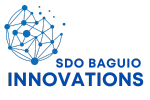BADANG (Bringing Arithmetic to Daily Activities for Nurturing Growth): Chore-Based Learning Program
RANDY P. CAYAT
Proponent
The Problem
The Context
These learners are struggling with basic math concepts and need active home learning support to improve
their skills.
Stakeholders Pain Points
Struggle to connect math to daily life, leading to disengagement.
TEACHERS
Increased workload and pressure to develop and implement effective interventions and support strategies.
PARENTS
Stress and uncertainty about how to effectively support their children at home and seek additional resources.
Other Stakeholders:
Pressure to allocate resources effectively and ensure that interventions and support systems are in place to address the proficiency issue.
The Solution
This program enables learners to master fundamental math concepts by integrating them
into everyday household chores. By fostering active learning, it makes math practical, enjoyable, and relevant to daily life.
“Badang” is a kankanaey word that means “to help.”
Challenges
Ensuring that parents consistently participate and apply the math activities with their children at home.
Time Constraints
Balancing the demands of household chores with structured learning time, especially in busy or working households.
Resource Availability
Providing adequate tasks, learning guides and materials that parents can easily understand and use.
Needed Resources
Home Learning Guides:
Printed or digital guides for parents to use with their children.
Math Manipulatives
(e.g.’ counting blocks, measuring tapes, and shapes)
Journals for learners to record tasks and reflections
Reward materials
(e.g., certificates, badges)
HUMAN RESOURCES
- Trained facilitators
- Parents or guardians to participate in the program
- Community volunteers for support and resource sharing
- Experts for workshop sessions
(e.g., math educators, community leaders)
TECHNICAL & DIGITAL RESOURCES:
- Online platform for community sharing and engagement
- Digital tools for tracking progress (e.g., apps or spreadsheets)
- Training materials and resources for parents (e.g., guides, videos)
- Communication tools for updates and challenges (e.g., email, social media)
Monitoring & Evaluation
Learners maintain a journal where they record their chores, the math involved, and their reflections on the tasks. This encourages critical thinking and reinforces learning.
Progress & Reward:
Families track their progress with a point- based system where learners earn points for completing chores with math tasks. Rewards can include certificates, badges, or special family activities.
RANDY P. CAYAT
Proponent



